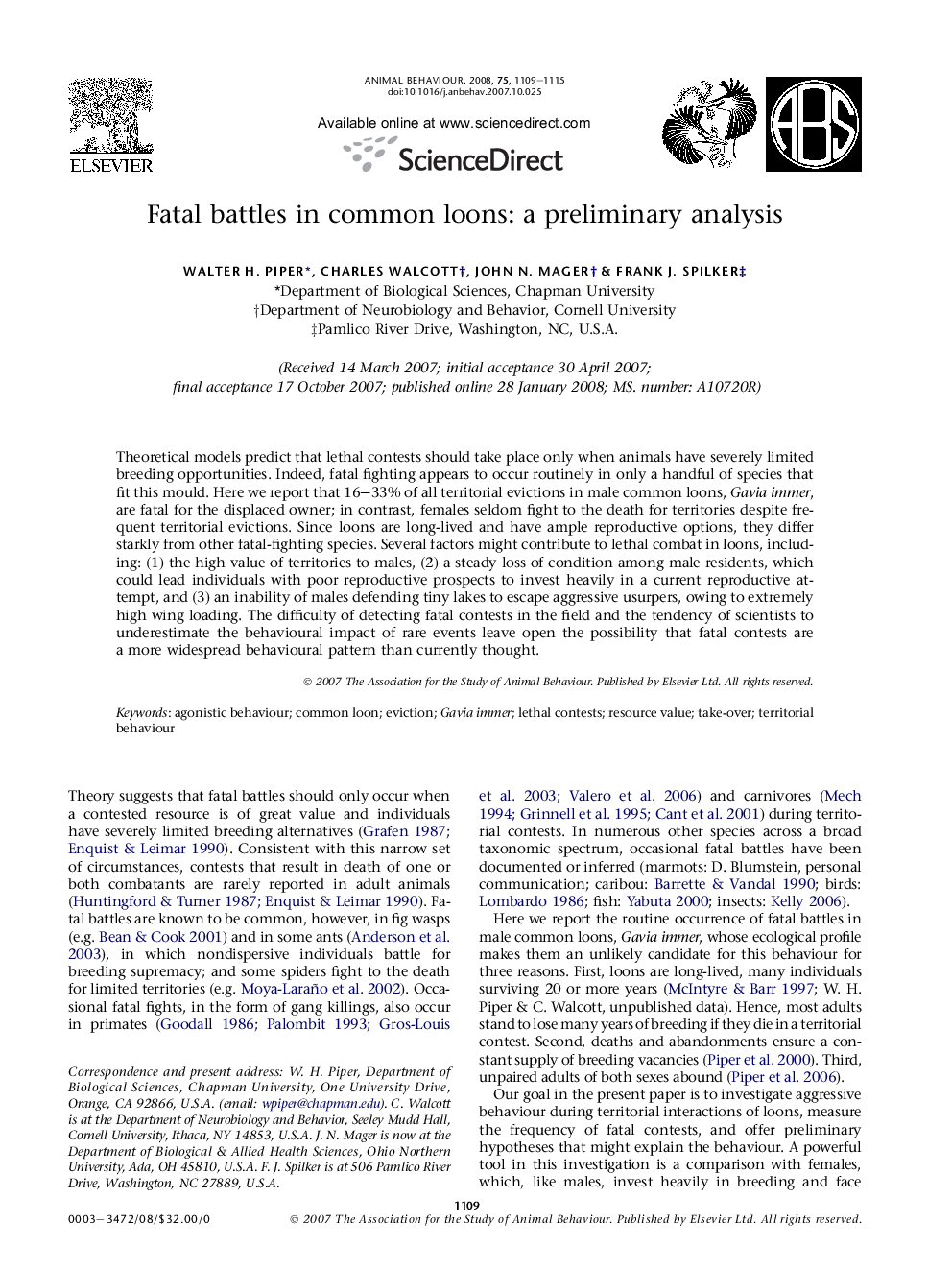| Article ID | Journal | Published Year | Pages | File Type |
|---|---|---|---|---|
| 2418934 | Animal Behaviour | 2008 | 7 Pages |
Theoretical models predict that lethal contests should take place only when animals have severely limited breeding opportunities. Indeed, fatal fighting appears to occur routinely in only a handful of species that fit this mould. Here we report that 16–33% of all territorial evictions in male common loons, Gavia immer, are fatal for the displaced owner; in contrast, females seldom fight to the death for territories despite frequent territorial evictions. Since loons are long-lived and have ample reproductive options, they differ starkly from other fatal-fighting species. Several factors might contribute to lethal combat in loons, including: (1) the high value of territories to males, (2) a steady loss of condition among male residents, which could lead individuals with poor reproductive prospects to invest heavily in a current reproductive attempt, and (3) an inability of males defending tiny lakes to escape aggressive usurpers, owing to extremely high wing loading. The difficulty of detecting fatal contests in the field and the tendency of scientists to underestimate the behavioural impact of rare events leave open the possibility that fatal contests are a more widespread behavioural pattern than currently thought.
